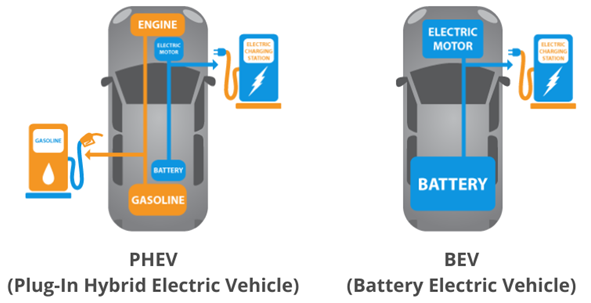In the ever-evolving landscape of sustainable transportation, the decision between an Electric Vehicle (EV) and a Plug-In Hybrid is a crucial one. “EV or Plug In Hybrid: Making Informed Choices for a Greener Tomorrow” explores the nuances, benefits, and considerations that can guide you in selecting the most suitable option for your eco-friendly journey.
Introduction
As the automotive industry pivots towards sustainability, the choice between an Electric Vehicle (EV) and a Plug-In Hybrid becomes pivotal for eco-conscious consumers. This article aims to demystify the decision-making process, shedding light on the advantages and distinctions between these two green technologies.
Understanding EVs and Plug-In Hybrids
Before delving into the intricacies of the decision-making process, it’s essential to understand the fundamental differences between Electric Vehicles and Plug-In Hybrids.
- Electric Vehicles (EVs): These vehicles run solely on electric power, drawing energy from rechargeable batteries. They emit zero tailpipe emissions and are considered the epitome of clean and sustainable transportation.
- Plug-In Hybrids: Combining the best of both worlds, Plug-In Hybrids feature an electric motor and an internal combustion engine. They can operate on electric power alone for shorter distances and switch to the combustion engine for longer journeys.
The Advantages of EVs
When considering an EV, the primary allure lies in its commitment to environmental conservation. Zero emissions, reduced reliance on fossil fuels, and lower maintenance costs contribute to the appeal of Electric Vehicles. Charging infrastructure is expanding rapidly, providing increased accessibility for EV users.
The Appeal of Plug-In Hybrids
For those hesitant to fully commit to electric power, Plug-In Hybrids offer a compromise. The ability to switch between electric and gasoline power ensures flexibility for various driving scenarios. This versatility is particularly appealing for users who may face challenges finding charging stations.
Key Considerations for Decision-Making
As consumers weigh the options of EVs or Plug-In Hybrids, several factors come into play:
- Driving Habits: Understanding the typical distance of daily commutes is crucial. If your daily travel falls within the electric range of a Plug-In Hybrid, it might be a suitable choice.
- Charging Infrastructure: Consider the availability and convenience of charging stations in your area. While EV charging stations are becoming more widespread, it’s essential to assess your local infrastructure.
- Environmental Impact: Evaluate the environmental benefits based on your location. In regions with a high percentage of renewable energy sources, the carbon footprint of EVs is significantly lower.
Looking to the Future
The automotive industry is witnessing rapid advancements in both EV and Plug-In Hybrid technologies. As battery technologies improve and charging infrastructure expands, the choices for eco-conscious consumers will become even more compelling.
Read too: To Buy Electric or Hybrid Car? Uncover the Pros and Cons to Make an Informed Decision
Conclusion
In the quest for sustainable transportation, the choice between EV or Plug-In Hybrid is a personal one, dependent on individual needs and preferences. “EV or Plug In Hybrid: Making Informed Choices for a Greener Tomorrow” aims to empower readers with the knowledge needed to navigate the evolving landscape of eco-friendly driving.
